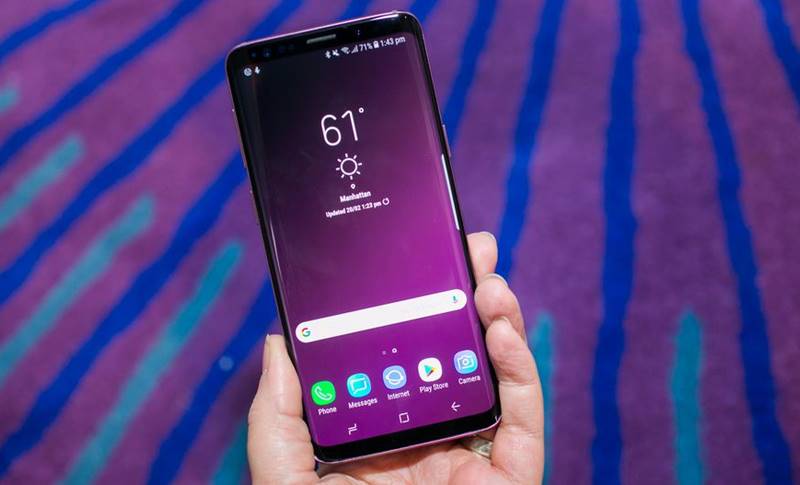Samsung Galaxy S9 a fost testat in fel si chip de catre cei care au avut ocazia de a folosi noul smartphone al companiei coreene, iar cu aceasta ocazie putem afla doua lucruri foarte interesante privind noul telefon. Primul dintre ele are legatura cu inregistrarea de clipuri video 4K la 60 FPS, Samsung Galaxy S9 oferind aceasta optiune in premiera pentru seria de telefoane ale coreenilor, dupa ce Apple a integrat-o in iPhone X in cursul anului trecut.
Samsung Galaxy S9 are totusi o limita stupida, mai exact nu poate inregistra clipuri video 4K la 60 FPS mai lungi de 5 minute, aceeasi limita fiind impuse anul trecut pentru S8, cand se inregistra 4K la 30 FPS. Samsung spune ca limiteaza timpul de inregistrare al clipurilor video 4K la 60 FPS pe Samsung Galaxy S9 in ideea de a proteja componentele interne, dar tot vorbim despre ceva stupid, din moment ce Apple ofera functia fara limita pe iPhone X, sau iPhone 8.
Samsung Galaxy S9 – problema ciudata si functia neasteptata
Samsung Galaxy S9 are totusi si o functie neasteptata implementata, mai exact suport pentru sistemul HEVC impus de catre compania Apple pentru iOS 11, iPhone si iPad incepand de anul trecut. Apple obliga utilizatorii iPhone 8 si iPhone X sa inregistreze clipuri video 4K la 60 FPS in acest format pentru ca inregistrarile video sa aiba o dimensiune mai mica, insa in Samsung Galaxy S9 exista optiunea de a folosi, sau nu, aceasta functie pentru inregistrari.
Samsung Galaxy S9 ma surprinde cu implementarea HEVC pentru inregistrarea video, insa acesta este un semn ca formatul va fi la un moment dat impus in locul H.264, iar HEIF va inlocui JPEG pentru poze. Apple si Samsung sunt doar primii producatori importanti care implementeaza suport pentru aceste tehnologii, iar Samsung Galaxy S9 va face formatul si mai popular, pentru ca in final suportul pentru ambele sa fie oferit nativ inclusiv in Windows si pe website-urile de internet.






















